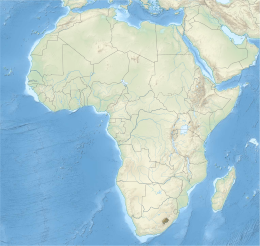Commons:Copyright rules by territory/Lesotho
|
Copyright rules: Lesotho Shortcut: COM:LESOTHO | |
 | |
 | |
| Durations | |
|---|---|
| Standard | Life + 50 years |
| Photograph | Create + 25 years |
| Anonymous | Publish + 50 years |
| Audiovisual | Create/Publish + 50 years |
| Applied art | Create + 25 years |
| Other | |
| Freedom of panorama | No |
| Terms run to year end | Yes |
| ISO 3166-1 alpha-3 | LSO |
| Treaties | |
| Berne convention | 28 September 1989 |
| WTO member | 31 May 1995 |
| URAA restoration date* | 1 January 1996 |
| *A work is usually protected in the US if it is a type of work copyrightable in the US, published after 31 December 1928 and protected in the country of origin on the URAA date. | |
This page provides an overview of copyright rules of Lesotho relevant to uploading works into Wikimedia Commons. Note that any work originating in Lesotho must be in the public domain, or available under a free license, in both Lesotho and the United States before it can be uploaded to Wikimedia Commons. If there is any doubt about the copyright status of a work from Lesotho, refer to the relevant laws for clarification.
Background
From 1869 until 1966 Lesotho was the British Crown Colony of Basutoland. Lesotho declared independence from the United Kingdom on 4 October 1966.
Lesotho has been a member of the Berne Convention since 28 September 1989 and the World Trade Organization since 31 May 1995.[1]
As of 2018 the World Intellectual Property Organization (WIPO), an agency of the United Nations, listed the Copyright Order 1989 (Order No.13 of 1989) as the main copyright law enacted by the legislature of Lesotho.[1] WIPO holds the text of this law in their WIPO Lex database.[2]
Durations
Under the 1989 law,
- Rights are protected during the life of the author and for 50 years after his death.[1989 Section 13(1)]
- Rights in a work of joint authorship are protected during the life of the last surviving author and for 50 years after his death.[1989 Section 13(2)]
- For anonymous and pseudonymous works, right are protected until the expiration of 50 years from the date on which the work was first lawfully published.[1989 Section 13(3)]
- Rights in a cinematographic or other audiovisual work are protected until the expiration of 50 years from the making of the work or, if the work is made available to the public during that period of 50 years with the consent of the author, fifty years from the date of its communication to the public.[1989 Section 13(4)]
- Rights in a photographic work or a work of applied art are protected until the expiration of 25 years from the making of the work.[1989 Section 13(5)]
Every period provided for under the preceding subsections shall run to the end of the calendar year in which it would otherwise expire.[1989 Section 13(6)]
Folklore: not free
See also: Commons:Paying public domain
Any publication, reproduction, distribution and communication to the public of expressions of folklore are subject to authorization by the Minister by regulations when they are made both with gainful intent and outside their traditional or customary context. These include (a) folk tales, folk poetry, riddles; (b) folk songs and instrumental folk music; (c) folk dances, plays and artistic forms of rituals; (d) productions of folk art, in particular, drawings, paintings, carvings, sculptures, pottery, terracotta, mosaic, woodwork, metalware, jewellery, basket costumes; and (e) traditional musical instruments.[1989 Section 19(1)] Where the Minister grants authorization, he may fix the amount of and collect such fees as he may determine.[1989 Section 22(2)]
Freedom of panorama
See also: Commons:Freedom of panorama
Not OK: free use is only permitted on audio-visual or videographic works, excluding photographic works. The Copyright Order 1989 allows the reproduction of works of art and of architecture in an audiovisual work or video-recording, and the communication to the public of the works so reproduced, if the said works are permanently located in a place where they can be viewed by the public or are included in the audio-visual work or video-recording only by way of background or as incidental to the essential matters represented.[1989 Section 9(e)]
Incidental utilization of expressions of folklore in a photograph, film or television broadcast is also allowed.[1989 Section 19(d)]
See also
Citations
- ↑ a b Lesotho Copyright and Related Rights (Neighboring Rights). WIPO: World Intellectual Property Organization (2018). Retrieved on 2018-11-05.
- ↑ Copyright Order 1989 (Order No.13 of 1989). Lesotho (1989). Retrieved on 2018-11-05.